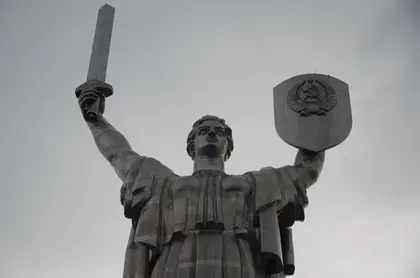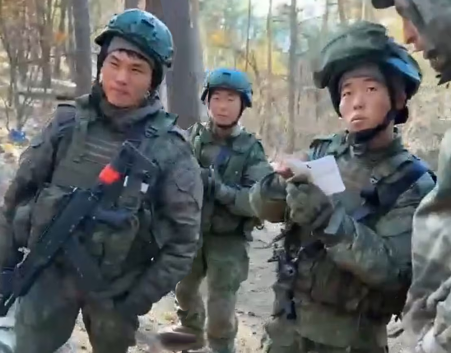Russian leaders today cite the need to defeat Ukrainian “nationalism.” The Eurasianist political philosophy driving Russia’s revanchist foreign policy thus tracks closely with Czarist imperialism and Soviet Communism.
Lenin distinguished “bourgeois nationalism” from socialist patriotism. Stalin sought to stamp out – ideologically and violently – feelings of attachment to national culture and traditions among the peoples of the Soviet republics and satellite states. In place of these would be a particular Soviet patriotism, defined and guided by Russians, the so-called “elder brothers of the Soviet people.”
JOIN US ON TELEGRAM
Follow our coverage of the war on the @Kyivpost_official.
Ukraine’s resistance to Russia’s current effort to crush its national identity and sovereignty ought to be seen in light of how the country’s Soviet-era human rights defenders reconciled universal human rights principles with the country’s national culture.
Emergence of the Helsinki Committees
Numerous “Helsinki committees” grew out of the Soviet bloc in the wake of the 1975 Helsinki Final Act, and the founding of the Moscow Helsinki Group in 1976. They were independent and civil society organizations, made up mainly of intellectuals who sought to hold their governments accountable based on the Soviet Union’s signature on the document.
In general, these organizations sought not regime change, but compliance with human rights commitments. Standing outside of political structures, they positioned themselves to offer objective analysis.

Three Killed as Russia Strikes Kryvyi Rih with Ballistic Missiles
Many members of Helsinki groups faced exile, imprisonment, torture and murder; indeed, at a celebration of a milestone anniversary of the Moscow Helsinki Group in 2001, a participant joked that if he had heard the words “Helsinki 25,” he would have thought it referred to a jail term.
It is worth noting that, among these, the Ukrainian Helsinki Group was the most persecuted. The Helsinki Commission of the U.S. Congress, an independent entity set up to monitor compliance with the Helsinki Accords, considered the Ukrainian Human Rights Group “the most repressed, in terms of prison sentences, of the Soviet Helsinki Groups.” All but one of its 83 members were jailed by the Soviet regime.
Why did the Group pose such a threat? Of course, it was because Ukraine was the jewel in the Soviet empire’s crown. The Ukrainian human rights movement that raised its voice in the 1970s was both a movement for compliance with the human rights standards defined in the Helsinki Accords, and one focused on reviving Ukrainian nationhood; for its founders, those goals were consistent with one another, and indivisible.
The right to be a Ukrainian
A 1977 manifesto of the Ukrainian Helsinki Group was largely a lament about the degradation of Ukrainian culture under Soviet dominion. The document stated that Ukrainians had “lost the living spirit of the entire past under the press of bureaucratic usurpers.” One of its members wrote that “the first, rudimentary condition of my existence is the right to be a Ukrainian.” Indeed, Ukrainian identify was considered “the root of spirituality and identity.”
Mykola Rudenko, the group’s founder, had been expelled from the Communist Party for “idealizing the peasant style of life,” and was sentenced by Soviet authorities to 12 years in jail and exile for “anti-Soviet agitation and propaganda.” Rudenko, a poet and philosopher, died in 2004.
The Helsinki Group, while stressing Ukrainian national rights, professed a desire to be part of a Europe where both Ukrainian identity and individual human rights protections could coexist. Their credo was “peace and prosperity in Europe.” They reviled the Soviet Union not only for punishing what its authorities called their “bourgeois nationalism,” but also for its stifling bureaucracy.
They envisioned a “united Europe” as an antithesis to the Soviet Union – “not an empire.” It would be a Europe where Ukraine could be Ukraine; where Ukrainians could realize the potential of their culture and their national destiny.
Nationalistic feelings were what kept many Soviet and East European citizens intellectually, morally, and even physically alive, and to be able to form post-Soviet democracies. All the dissident human rights groups in the Soviet Union either incorporated explicitly nationalist elements, or defended the rights of movements for ethnic or national self-determination.
Some, after the collapse of the USSR, veered off into ethnic and national chauvinism. Post-Soviet and East European states, including Ukraine, have often contended with ethno-nationalist movements, and posed obstacles to the realization of minority rights.
But the Ukrainian Helsinki Group and others understood that there is no intrinsic contradiction between upholding principles of universal human rights and the goal of national self-determination. In fact, the reality of universal, individual human rights is always best understood in a particular national context, and our rights are always most meaningfully and efficiently protected under national constitutions.
That is a lesson that, inspired by the Helsinki activists, Ukraine can bring as a future member of the European Union.
Aaron Rhodes is a Senior Fellow in the Common Sense Society. He was executive director of the International Helsinki Federation for Human Rights 1993-2007. In 2018, he published The Debasement of Human Rights (Encounter Books).
The views expressed in this article are those of the author and not necessarily of Kyiv Post.
You can also highlight the text and press Ctrl + Enter










